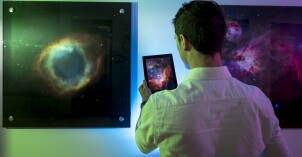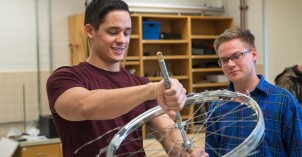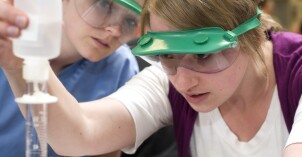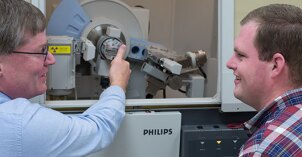
Building a Compelling Resume
Because physicists are highly sought-after in many modern fields, adding a strong competency in computer programming to your skillset only adds to your appeal. You become a sound thinker, with great problem-solving skills, and great tools at your disposal.
The computational emphasis provides 12 credits of computer science and math to improve your programming abilities. Python is the language of choice for the physics department. While you earn your degree, and even after, you'll find plenty of support from fellow students and the physics faculty.
The computational emphasis provides 12 credits of computer science and math to improve your programming abilities. Python is the language of choice for the physics department. While you earn your degree, and even after, you'll find plenty of support from fellow students and the physics faculty.
"All of the professors that I have taken classes from clearly wanted me to succeed and were more than willing to provide me with the support that I needed."
JOHN R.,
BYU-I GRADUATE
Highlighted Career Paths
Graduates with a degree in Computational Physics have a wide array of rewarding careers before them. Check out some of the top careers students get with this degree or explore more career options in I-Plan.
Data Scientist
A data scientist collects and analyzes data. Most companies and universities lean heavily on this work to help them make sound, data-driven decisions about the direction of their organization. A data scientist needs to have strong analytic/problem solving skills and a proficiency in computer programming.
Materials Scientist
A materials scientist is someone who studies and analyzes the chemical properties and structure of different man-made and natural materials. A scientist in this field will routinely do their work on a “super” computer, or a computer with tens of thousands of processors at their disposal.
Software Engineer
A software engineer is tasked with building computer software for all kinds of applications. Most software engineers work as employees or contractors. Software engineers work with businesses, government agencies, and non-profit organizations.
Getting Started in this Degree
If you are interested in Computational Physics, start with one of the following major-specific courses
* If you are not prepared to take Calculus your first semester, contact your faculty mentor of Physics Dept. Office






